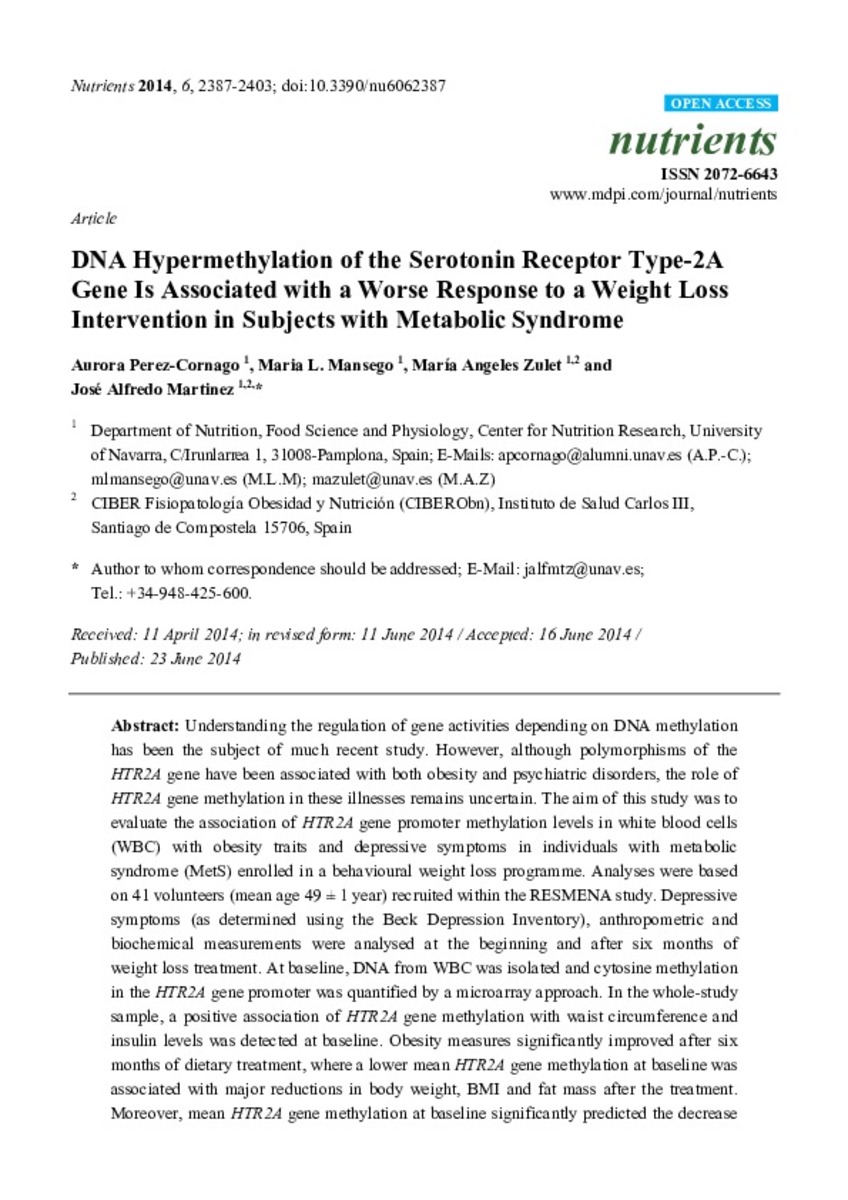DNA hypermethylation of the serotonin receptor type-2A gene is associated with a worse response to a weight loss intervention in subjects with metabolic syndrome
Keywords:
DNA methylation
HTR2A gene
Obesity
Metabolic syndrome
Energy restriction
Depressive symptoms
Adiposity
Epigenetics
Publisher:
MDPI (Molecular Diversity Preservation International)
Citation:
Pérez-Cornago A, Mansego ML, Zulet MA, Martínez JA. DNA hypermethylation of the serotonin receptor type-2A gene is associated with a worse response to a weight loss intervention in subjects with metabolic syndrome. Nutrients 2014 Jun 23;6(6):2387-2403
Statistics and impact
0 citas en

Items in Dadun are protected by copyright, with all rights reserved, unless otherwise indicated.







